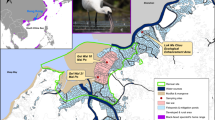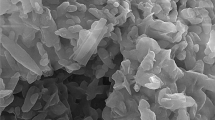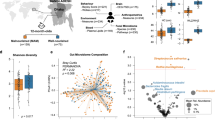Abstract
DURING experiments on the nutrition of Oncopeltus fasciatus, in the course of which both nymphs and adults ingested solutions containing a fine suspension of Chinese black, it was noticed that only the adults voided black fæces, and that newly moulted adults voided a particularly thick black mass within two days of ecdysis. In a confirmatory experiment, the insects were reared from the egg on milkweed seed and a water-suspension of Chinese black, and their excreta were collected on the filter paper shown in Fig. 1. By the time the first adults had appeared, only watery material had been excreted, whereas three days later, when nearly all had moulted, black fæcal masses were evident.
This is a preview of subscription content, access via your institution
Access options
Subscribe to this journal
Receive 51 print issues and online access
$199.00 per year
only $3.90 per issue
Buy this article
- Purchase on SpringerLink
- Instant access to the full article PDF.
USD 39.95
Prices may be subject to local taxes which are calculated during checkout
Similar content being viewed by others
References
Hood, C. W., Ohio J. Sci., 37, 151 (1937).
Goodchild, A. J. P., Proc. Zool. Soc. Lond., 122, 543 (1952).
Author information
Authors and Affiliations
Rights and permissions
About this article
Cite this article
MILES, P. Retention of Food Residues in the Midgut by Nymphs of the Milkweed Bug, Oncopeltus fasciatus Dall.. Nature 182, 959 (1958). https://doi.org/10.1038/182959a0
Issue date:
DOI: https://doi.org/10.1038/182959a0



